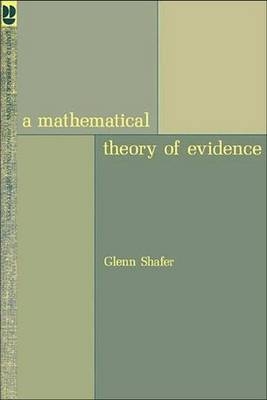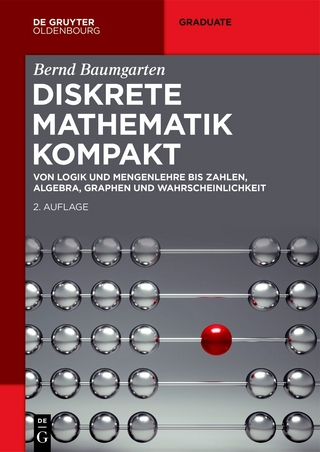
A Mathematical Theory of Evidence
Seiten
1976
Princeton University Press (Verlag)
978-0-691-08175-5 (ISBN)
Princeton University Press (Verlag)
978-0-691-08175-5 (ISBN)
- Titel ist leider vergriffen;
keine Neuauflage - Artikel merken
Both in science and in practical affairs we reason by combining facts only inconclusively supported by evidence. Building on an abstract understanding of this process of combination, this book constructs a new theory of epistemic probability. The theory draws on the work of A. P. Dempster but diverges from Depster's viewpoint by identifying his "lower probabilities" as epistemic probabilities and taking his rule for combining "upper and lower probabilities" as fundamental.
The book opens with a critique of the well-known Bayesian theory of epistemic probability. It then proceeds to develop an alternative to the additive set functions and the rule of conditioning of the Bayesian theory: set functions that need only be what Choquet called "monotone of order of infinity." and Dempster's rule for combining such set functions. This rule, together with the idea of "weights of evidence," leads to both an extensive new theory and a better understanding of the Bayesian theory. The book concludes with a brief treatment of statistical inference and a discussion of the limitations of epistemic probability. Appendices contain mathematical proofs, which are relatively elementary and seldom depend on mathematics more advanced that the binomial theorem.
The book opens with a critique of the well-known Bayesian theory of epistemic probability. It then proceeds to develop an alternative to the additive set functions and the rule of conditioning of the Bayesian theory: set functions that need only be what Choquet called "monotone of order of infinity." and Dempster's rule for combining such set functions. This rule, together with the idea of "weights of evidence," leads to both an extensive new theory and a better understanding of the Bayesian theory. The book concludes with a brief treatment of statistical inference and a discussion of the limitations of epistemic probability. Appendices contain mathematical proofs, which are relatively elementary and seldom depend on mathematics more advanced that the binomial theorem.
Glenn Shafer is professor at Rutgers University and director of the Ph.D. program.
| Verlagsort | New Jersey |
|---|---|
| Sprache | englisch |
| Themenwelt | Mathematik / Informatik ► Mathematik |
| ISBN-10 | 0-691-08175-1 / 0691081751 |
| ISBN-13 | 978-0-691-08175-5 / 9780691081755 |
| Zustand | Neuware |
| Haben Sie eine Frage zum Produkt? |
Mehr entdecken
aus dem Bereich
aus dem Bereich
Von Logik und Mengenlehre bis Zahlen, Algebra, Graphen und …
Buch | Softcover (2024)
De Gruyter Oldenbourg (Verlag)
CHF 104,90
fundiert, vielseitig, praxisnah
Buch | Softcover (2021)
Springer Berlin (Verlag)
CHF 46,15
Analysis und Lineare Algebra mit Querverbindungen
Buch | Hardcover (2022)
Springer Spektrum (Verlag)
CHF 89,95


